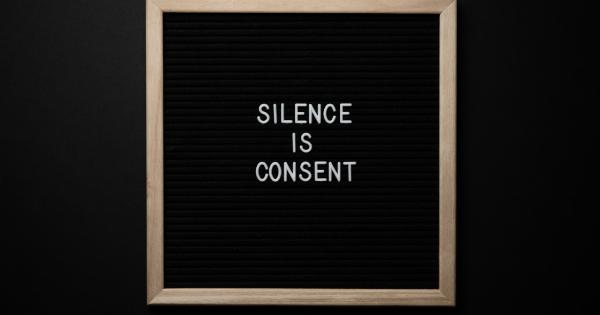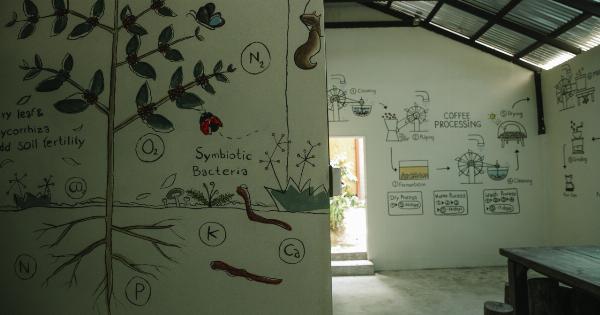Life is a series of ups and downs. We all face challenging circumstances at some point, be it personally, professionally, or emotionally. These difficult situations can often catch us off guard and leave us feeling overwhelmed.
However, it is our response to these challenges that determines our ability to overcome them and grow stronger.
Understanding Difficult Circumstances
It is essential to acknowledge and understand what constitutes as difficult circumstances. They can vary significantly from individual to individual and situation to situation.
Difficult circumstances may include financial hardships, health issues, loss of a loved one, relationship problems, or even career setbacks.
Regardless of the specific nature of the challenge, the first step in overcoming difficult circumstances is to fully accept their existence.
Denying or avoiding the reality of the situation will only prolong the process of resolution and hinder personal growth.
Fostering Resilience
Resilience is the ability to bounce back from difficult circumstances and to adapt and grow from them. It is an essential quality that allows individuals to overcome adversity and emerge stronger.
So, how can one activate mechanisms to foster resilience in the face of challenging circumstances?.
1. Cultivating a Positive Mindset
A positive mindset is crucial when dealing with difficult circumstances. Maintaining optimism helps to shift focus from the problem to potential solutions, enabling clearer thinking and resourcefulness.
Surrounding yourself with positive influences, practicing gratitude, and engaging in activities that bring joy can all contribute to cultivating a positive mindset.
2. Developing a Support Network
Building a strong support network of friends, family, or even professional counselors can provide the necessary emotional support during tough times.
Sharing your struggles with trusted individuals not only alleviates the burden but also allows for different perspectives and potential solutions to arise.
3. Seeking Professional Help
For some challenging circumstances, seeking professional help might be the best course of action. Therapists, counselors, or life coaches are trained to provide guidance and support in navigating through difficult situations.
They can offer tools and techniques that help individuals understand their emotions, develop coping mechanisms, and ultimately overcome the challenges they face.
4. Developing Problem-Solving Skills
Difficult circumstances often require problem-solving skills. Developing the ability to analyze the situation objectively, break it down into manageable parts, and formulate effective strategies to tackle each challenge is crucial.
Enhancing problem-solving skills enables individuals to approach difficult circumstances with a sense of empowerment and resourcefulness.
5. Taking Care of Yourself
Self-care is of utmost importance when dealing with difficult circumstances. Prioritizing physical health, mental well-being, and emotional balance can significantly help individuals navigate through tough situations.
Engaging in activities such as exercise, meditation, hobbies, or spending time in nature can provide the necessary respite and rejuvenation needed to tackle challenges head-on.
6. Embracing Change and Adaptability
Difficult circumstances often bring about changes that can be challenging to accept. However, embracing change and cultivating adaptability can lead to personal growth and new opportunities.
Being open to new possibilities and willing to step out of one’s comfort zone enables individuals to navigate through difficult circumstances with greater resilience.
7. Setting Realistic Goals
Setting realistic and achievable goals is crucial when facing difficult circumstances. Breaking down the ultimate objective into smaller, manageable milestones allows individuals to track their progress and stay motivated.
Celebrating small victories along the way provides the necessary encouragement and reassurance that progress is being made.
8. Practicing Mindfulness
Mindfulness, the practice of being fully present in the moment, can be incredibly helpful in handling difficult circumstances.
It allows individuals to observe their thoughts and emotions without judgment, creating space for clarity and wise decision-making. Mindfulness techniques, such as deep breathing exercises or meditation, can provide a calm and centered mindset amidst challenging situations.
9. Developing Emotional Intelligence
Emotional intelligence involves the ability to recognize, understand, and manage one’s own emotions, as well as empathize with others.
Developing emotional intelligence can help individuals navigate through difficult circumstances by effectively communicating their needs, understanding different perspectives, and maintaining healthy relationships, even in challenging times.
10. Practicing Self-Reflection and Growth
Engaging in self-reflection and personal growth is crucial when dealing with difficult circumstances.
Taking time to assess lessons learned, identifying areas for improvement, and embracing personal growth opportunities allows individuals to emerge stronger from challenging situations. Acknowledging the growth potential within difficult circumstances can transform challenges into valuable life experiences.
Conclusion
Difficult circumstances are an inevitable part of life. However, by activating these mechanisms and implementing effective strategies, individuals can navigate through tough situations with resilience and emerge stronger.
Cultivating a positive mindset, developing a support network, seeking professional help when needed, and practicing self-care are all vital aspects of handling difficult circumstances. Embracing change, setting realistic goals, and nurturing emotional intelligence are additional tools that can foster resilience.
By incorporating these mechanisms into our lives, we can navigate challenging circumstances and grow from them, ultimately leading to personal growth and a stronger sense of self.































